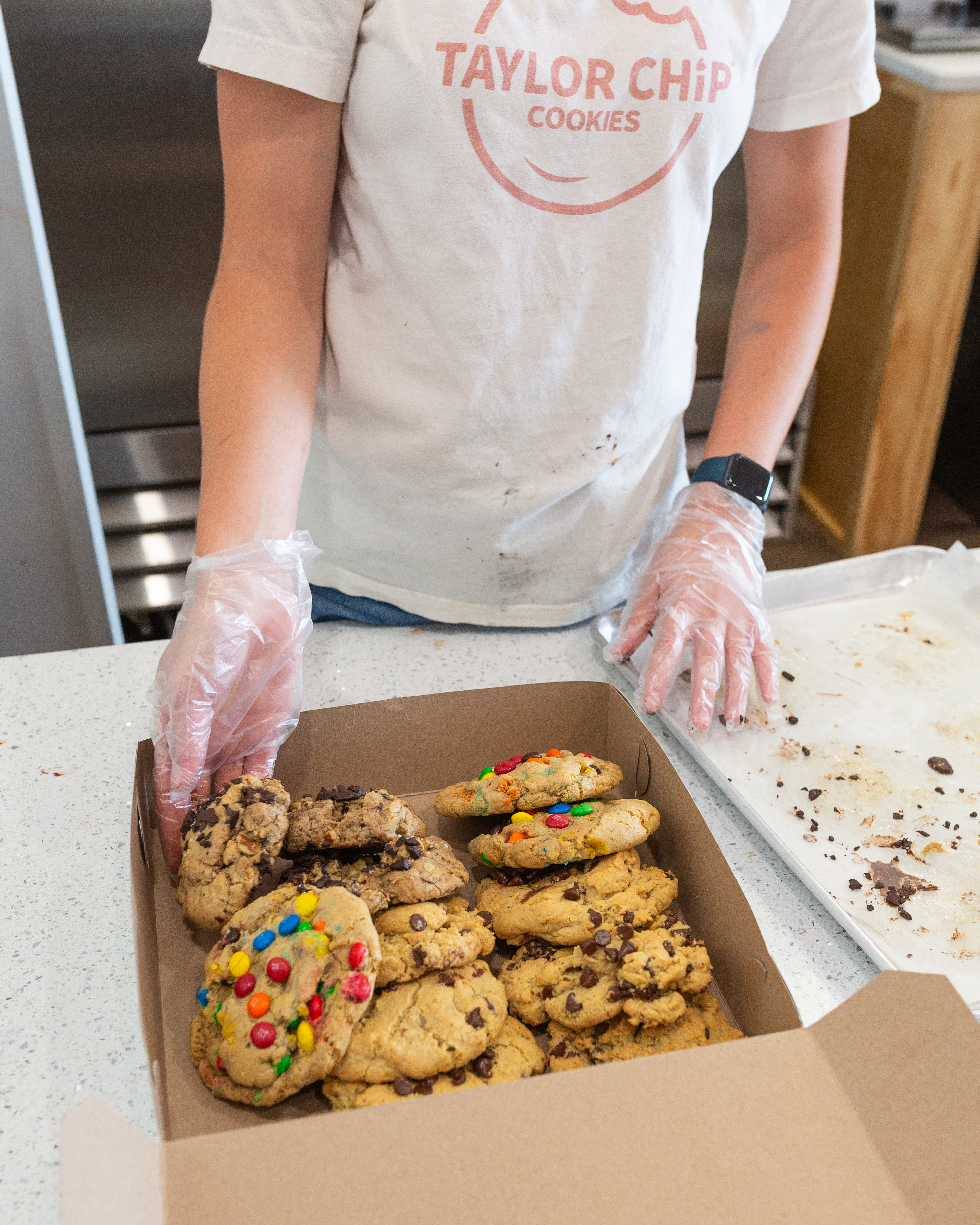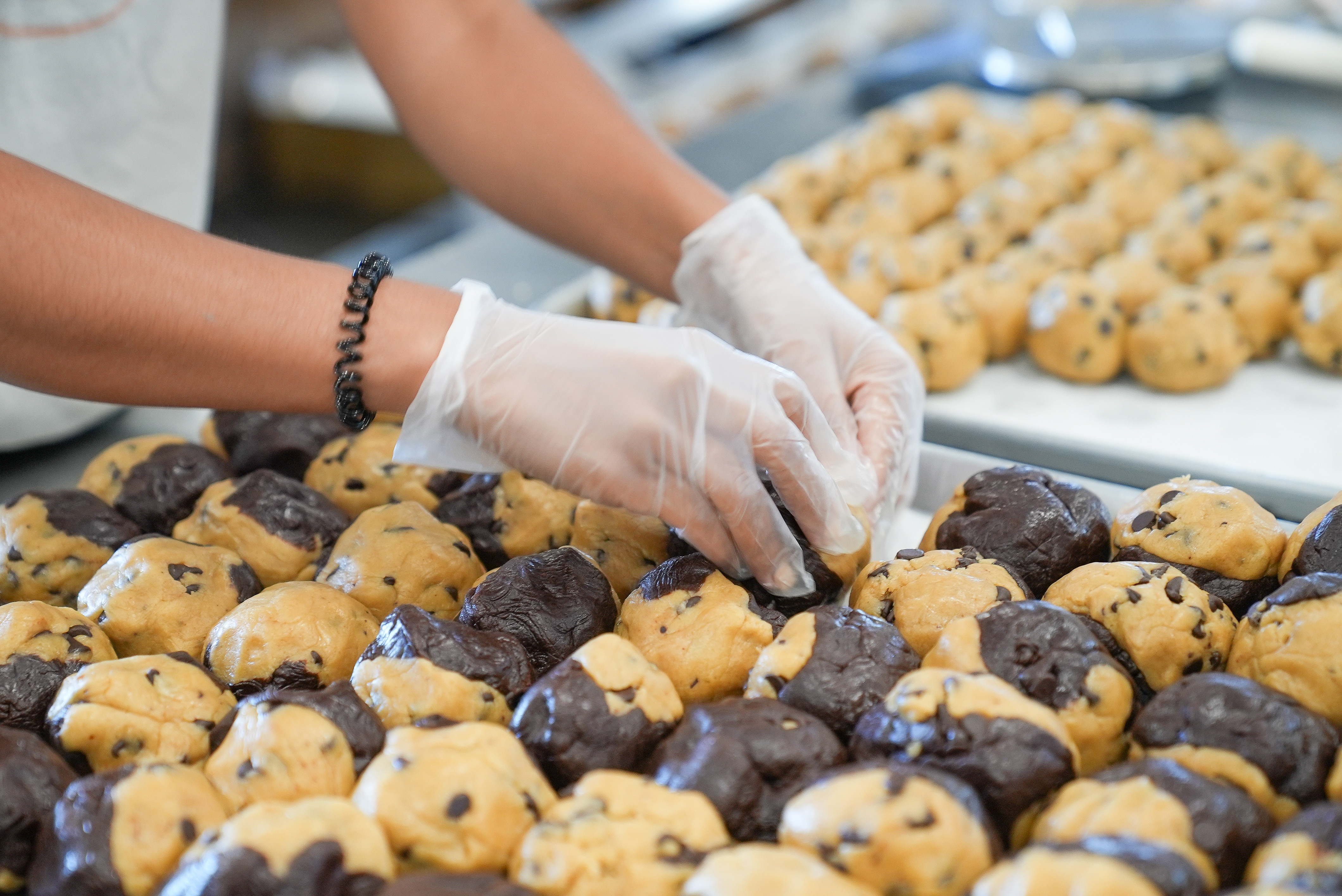After wisdom teeth removal, you should avoid eating cookies initially to guarantee proper healing. Cookies, especially those that are crumbly or crunchy, can dislodge the blood clots that are essential for your recovery and increase the risk of dry socket. Additionally, the high sugar content in cookies can attract bacteria, leading to potential infections. During the first week, stick to soft foods like mashed potatoes or yogurt. Gradually reintroduce more solid foods, paying attention to your comfort levels and healing progress. To understand when it's safe to enjoy your favorite treats again, you'll want to take into account a few important guidelines.
Key Takeaways
- Avoid eating cookies immediately after wisdom teeth removal to prevent dislodging blood clots and risking dry socket.
- Wait at least a week before reintroducing cookies into your diet, depending on your healing progress.
- Start with softer cookies and avoid those with nuts or hard pieces to protect healing gums.
- Monitor your comfort levels and choose soft food alternatives like pudding or yogurt during the initial recovery phase.
- Consult your dentist for personalized advice on safe food reintroduction post-surgery.
Post-operative Diet and Restrictions
After wisdom teeth removal, it's essential to follow your dentist's instructions to guarantee proper healing and avoid complications. You should stick to a diet of soft foods, as hard or chewy items can irritate the surgical site and impede recovery. Pay close attention to these guidelines to maintain comfort and encourage swift healing.
Importance of Following Instructions
Adhering to your dentist's post-operative instructions is vital for a smooth and speedy recovery after wisdom teeth removal. Following these guidelines carefully helps prevent complications and guarantees that the healing process goes as planned. After a wisdom tooth extraction, your oral surgeon will provide specific instructions aimed at protecting the blood clot that forms in the extraction site, which is essential for healing.
Ignoring these instructions can lead to prolonged healing times and increased discomfort. It's important to stick to soft foods in the initial days post-surgery because solid foods can dislodge the blood clot, potentially leading to a painful condition known as dry socket. The recovery process varies for each individual, but strictly following the advised diet and care routine can greatly influence your overall healing times.
Soft Food Requirements
Sticking to a soft food diet is a key aspect of your post-operative care after wisdom teeth removal. This diet helps protect your healing gum and extraction sites, guaranteeing a smoother and faster recovery. Post-surgery, your mouth is highly sensitive and susceptible to damage from certain textures and consistencies.
Avoiding chewy foods and crunchy foods is vital because they can irritate the healing wound, potentially leading to complications. Instead, focus on foods with a soft texture that are easy to chew and swallow. Here are some suitable options:
- Mashed potatoes: Gentle on the gums and easy to consume.
- Yogurt: Smooth and packed with nutrients to aid healing.
- Applesauce: Soft and easy to eat, providing essential vitamins.
Maintaining this soft food diet is an essential part of wisdom teeth aftercare. It minimizes the risk of food particles getting lodged in the extraction sites, which can cause irritation or infection. Additionally, soft foods reduce the need for excessive chewing, allowing your mouth to rest and heal. Remember, following these dietary guidelines post-surgery will help guarantee a quicker and more comfortable recovery process. Always consult with your dentist for personalized advice tailored to your specific situation.

Choose Your Own Delightfully Perfect Cookies.
With almost 30 flavors to choose from, you can make your box as unique as you are.
Cookies and Wisdom Teeth Recovery
After wisdom teeth removal, eating cookies can hinder your recovery due to their hard texture and sugary content, which might irritate the surgical site and increase the risk of infection. Instead, opt for soft, nutrient-rich foods like yogurt, mashed potatoes, and smoothies that are gentle on your healing gums. These alternatives not only provide essential nutrients but also minimize discomfort and complications during the recovery period.
Why Cookies Are Not Suitable Initially
When you're recovering from wisdom teeth removal, biting into cookies might sound tempting, but it's not the best idea initially. After oral surgery, your extraction wounds are sensitive and require special care to heal properly. Consuming cookies can lead to several complications:
- Dry socket: The crumbly nature of cookies can dislodge the blood clot forming in your wound, causing dry socket, a painful condition that delays healing.
- Risk of infection: Sugary foods like cookies can attract bacteria to your extraction site, increasing the risk of infection.
- Undue pressure: Biting into hard or sticky foods can place undue pressure on your healing gums, potentially causing further damage.
During the initial phase of recovery, it's essential to avoid crumbly foods that might irritate your extraction wounds. Sticky foods can also cling to your teeth and gums, making it difficult to clean your mouth properly. The dental procedure you underwent leaves your mouth vulnerable, and choosing the wrong tooth extraction food items can hinder recovery.
Safe Food Alternatives
Maneuvering the recovery period after wisdom teeth removal requires making wise dietary choices to guarantee a smooth healing process. Since cookies aren't a suitable option immediately following dental surgery, you'll need to explore safe food alternatives that promote a smooth recovery. Opting for soft foods is essential during the initial stages of the recovery period to prevent any disruption to the healing process.
Consider incorporating nutritious foods like mashed potatoes, applesauce, and yogurt into your diet. These are easy-to-eat foods that won't irritate the surgical site. Soups, especially broths and pureed varieties, are another excellent choice, providing hydration and essential nutrients without requiring much chewing effort. Smoothies made with fruits, vegetables, and protein supplements can serve as a delicious and nourishing alternative to cookies, ensuring you get the vitamins and minerals needed for the best healing.
As you progress through the post-surgery phase, gradually reintroducing slightly more textured foods like scrambled eggs or soft pasta can help ease the shift back to a more regular diet. Always prioritize foods that are gentle on your mouth to support a smooth recovery after wisdom tooth surgery.
Reintroducing Solid Foods
As you recover from wisdom teeth removal, reintroducing solid foods is an essential step in your healing process. Typically, you can start eating soft foods like cookies again after about a week, depending on how quickly your mouth heals. Be sure to consult your dentist for personalized advice and monitor your comfort levels as you gradually add more solid foods to your diet.
Healing Timeline
The journey to reintroducing solid foods after wisdom teeth removal hinges on patience and attentiveness to your body's signals. Initially, the painful condition of the surgical sites requires you to stick with soft foods. Generally, a few days after surgery, the healing sockets will start to close, reducing the risk of complications. During this initial recovery period, you should be cautious about what you eat to prevent food particles from getting stuck and causing infections.
To guarantee a smooth shift back to solid foods, consider the following timeline:
- First few days: Stick to liquids and very soft foods such as broth, smoothies, and mashed potatoes.
- Week one: Gradually introduce slightly more solid options like scrambled eggs, soft pasta, and yogurt.
- Week two and beyond: Depending on your healing progress, you can start incorporating more solid foods, but chew carefully and avoid hard or crunchy items.
Throughout this process, always listen to your body and consult your dentist or oral surgeon if you experience any unusual pain or swelling. By following these guidelines, you'll support your healing process and minimize the risk of complications, paving the way for a smooth recovery.
When Cookies Can Be Eaten Again
After steering through the initial stages of your healing timeline, you might start wondering when it's safe to enjoy treats like cookies again. Typically, wisdom teeth removal requires a careful recovery process, and your oral health depends considerably on how well you follow post-surgery guidelines. Initially, you should stick to soft foods that don't disturb your healing gum tissue.
In the first few days after wisdom teeth extraction, it's crucial to avoid foods with a crunchy texture. These could irritate your gums and delay your healing process. Generally, it's recommended to wait at least a week before reintroducing any solid foods, including cookies. However, the exact timing may vary based on individual healing rates, so consult your dentist for personalized advice.
Once your gum tissue starts to heal and you feel comfortable, you can gradually reintroduce your favorite foods. Start with softer cookies and avoid those with nuts or hard pieces that could cause discomfort. Monitor your oral health closely during this period, ensuring you don't disrupt the healing process. By pacing yourself and making informed choices, you can soon satisfy your sweet tooth without compromising your recovery.
Frequently Asked Questions
How Long Should I Avoid Crunchy Foods After Wisdom Teeth Removal?
You should avoid crunchy foods for at least a week after wisdom teeth removal. Your healing gums are sensitive, and crunchy foods can cause irritation or dislodge blood clots, leading to complications like dry socket.
Are There Specific Types of Cookies That Are Safer to Eat Post-Surgery?
You should opt for soft cookies like oatmeal or sugar cookies without hard pieces. Avoid crunchy or hard cookies that could irritate your surgical site. Always consult your dentist to guarantee you're choosing the safest options.
Can Eating Cookies Increase the Risk of Infection After Wisdom Teeth Removal?
Eating cookies can increase your risk of infection after wisdom teeth removal. Crumbs might get stuck in the extraction site, creating a breeding ground for bacteria. Stick to softer foods to guarantee proper healing and avoid complications.
Will Eating Cookies Delay the Healing Process of Wisdom Teeth Extraction Sites?
Eating cookies can delay the healing process of wisdom teeth extraction sites. The crumbs can get stuck in the wounds, causing irritation and potential infection. Stick to soft foods to guarantee a smoother recovery.
Are There Any Signs to Watch for if Cookies Cause Complications After Surgery?
Watch for signs like increased pain, swelling, or bleeding. If you notice any of these symptoms, it's best to contact your dentist. Avoid hard or crunchy cookies to prevent potential complications during your recovery.
Conclusion
In summary, after wisdom teeth removal, it's essential to comply with your dentist's guidelines, prioritizing soft foods that won't disturb the healing process. While cookies may seem tempting, they're not suitable initially due to their crunchy texture and potential to cause complications. Stick to safe alternatives like yogurt and mashed potatoes, gradually reintroducing solid foods as your recovery progresses. By following these recommendations, you'll guarantee a smooth healing process and can enjoy cookies again once fully recovered.








